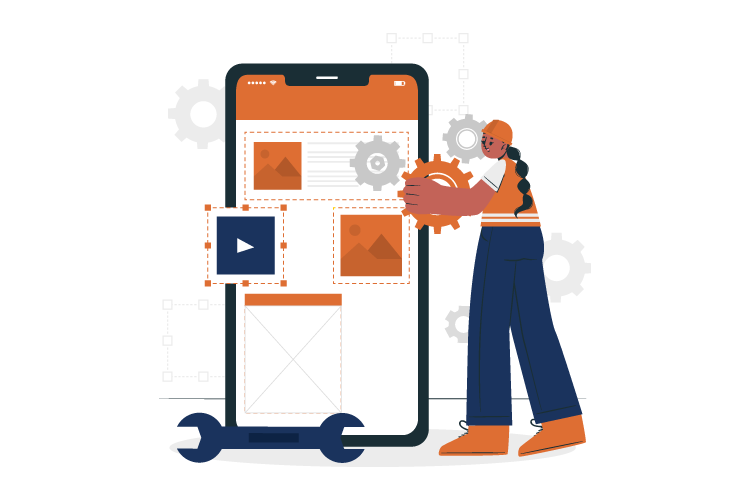5 Tips to Simplify Education CRM

Although a foundation that helps students pave a bright future, educational institutes are in the end a business enterprise with one main product – education.
But while students are the obvious recipients of this product, in many cases, especially schools. the parents, families, and guardians are the educational institutes’ paying customers. Thus, it is crucial that the institute’s management foster and continue to improve their relationships with parents, guardians, and families on top of their relationships with the students.
The introduction of an education CRM has helped higher education and other types of learning institutions manage their admissions, marketing and other interactions with their existing and potential prospects.
A CRM solution designed for the academic sector provides the education institute’s management a comprehensive view of their relationships with parents and guardians, including contact details, where they are in the admission process, tasks, follow-ups, and communication details.
When utilized properly, education CRM software can provide the management with highly actionable insights about their prospects, enabling them to enhance and personalize relationships not just with the students but with their parents and families as well.
CRM software for educational organizations is a critical investment and thus, it is also imperative that institutes find ways to maximize their CRM and generate huge returns.
Recommended: How Emerging Technologies like CRM for Education are Boosting Student Admissions
Here are some helpful ways to get the most out of your education CRM platform.
Pick the Right CRM

There are various types of CRMs based on purpose, industry, and business requirements. No CRM solution is designed with the one-size-fits-all approach. Each industry has its respective sets of rules, policies, and standards, which means a CRM built for retail isn’t exactly a smart choice if you are running an educational institute.
Choosing the right CRM should be chief among your priorities. To ensure smooth and seamless CRM adoption and implementation, you must pick one that is wholly designed for educational operations. It has to have the features you need as well as customization options to help you create and execute tailored processes that help you address requirements and meet standards.
That said, it can be hard to pick a CRM for the education industry as most CRM systems available today are built for businesses. Most CRM for education consultants, educators, and institute administrators are bespoke solutions. It is important that you consult with your stakeholders prior to investing in a customized education CRM platform for your institute. You must weigh the pros and cons before making a decision.
Recommended: Part 3 – Edu focused CRM: Admissions Lifeline for an Educational Enterprise
Make it Easy for the Team

Adoption is as important as choosing the right option. Thousands of companies and organizations have shelled out huge amounts of money on CRM systems, only to find months after that their investments are not generating the desired returns because their employees are struggling with the software. It’s either the employees are not making full use of the software’s features or they are not using the system at all.
CRMs are supposed to be easier and more efficient than spreadsheets. Don’t let your employees think of the opposite.
Poor adoption of your education CRM will cost your institute money. To prevent this, you need to give your staff ample training prior to introducing the CRM into your workplace. You can organize workshops and training seminars to prepare your staff and equip them with the knowledge and the skills they need to make the transition quick and easy.
According to a 2019 research by Forrester, 38% out of 414 CRM experts say that poor adoption strategy along with low engagement in change management and training attributed to the failure of CRM adoption. Make training intuitive and fun to increase their retention and dramatically shorten the learning curve.
Once you integrate your CRM into your workplace, be ready to assist your employees with the transition process. Their training will kick in and when they get the gist of the CRM, you can expect a substantial increase in workplace efficiency and productivity.
Gather as Much Information from the Start

You want to collect as much information from parents and prospective students as you can to help you generate clear and detailed lead profiles. Whenever a student or parent makes contact via the inquiry form, your CRM automatically takes all the information and uploads them into the system. Information such as name, address, hobbies, interests, financial status, and other data are essential in creating a profile.
With such information already laid out and readily available, your admissions staff can easily find programs and courses that are well suited to that person’s goals and interests. Following up is a breeze since they can easily retrieve the prospects’ contact information.
Having such data and profile at hand also benefits your marketing teams. They can personalize their approach per prospect, thus increasing their chances to turn prospects into a student or a paying parent.
Integrate Your CRM With All Digital Channels

Now that your education CRM is good to go, it is essential to properly link it with all your other digital tools and systems and synchronized across channels. This ensures that leads generated via PPC campaigns, website inquiries, social media channels, landing pages and other 3rd party channels such as Shiksha, Collegedunia, Careers360, etc are captured and categorized automatically.
For instance, the information provided via Facebook or chatbot such as name, address, and email is instantly captured and entered into the CRM. Depending on the CRM platform or the existing workflow rules, a new lead will be generated or the information gathered is placed into specific categories. Notifications are immediately sent to the appropriate person who will then act on the information accordingly.
To put it simply, no opportunities are missed.
Conclusion

Global spending on CRM has increased significantly in the last 5 years and the trends say it’s going to increase even more in the future. A CRM forecast by Statista predicts a robust growth of the global CRM market. From $27.72 billion in 2017, the CRM software industry will balloon to as much as $29.77 billion by 2022.
However, the bulk of CRMs sold in the market are designed primarily for business, not for education institutes. That said, the number of higher education institutes and other learning institutions embracing and adopting CRM technologies and solutions are increasing.
Custom CRM solution providers, such as ExtraaEdge, are manning the frontline in developing dependable and scalable bespoke CRM systems for the education industry.


